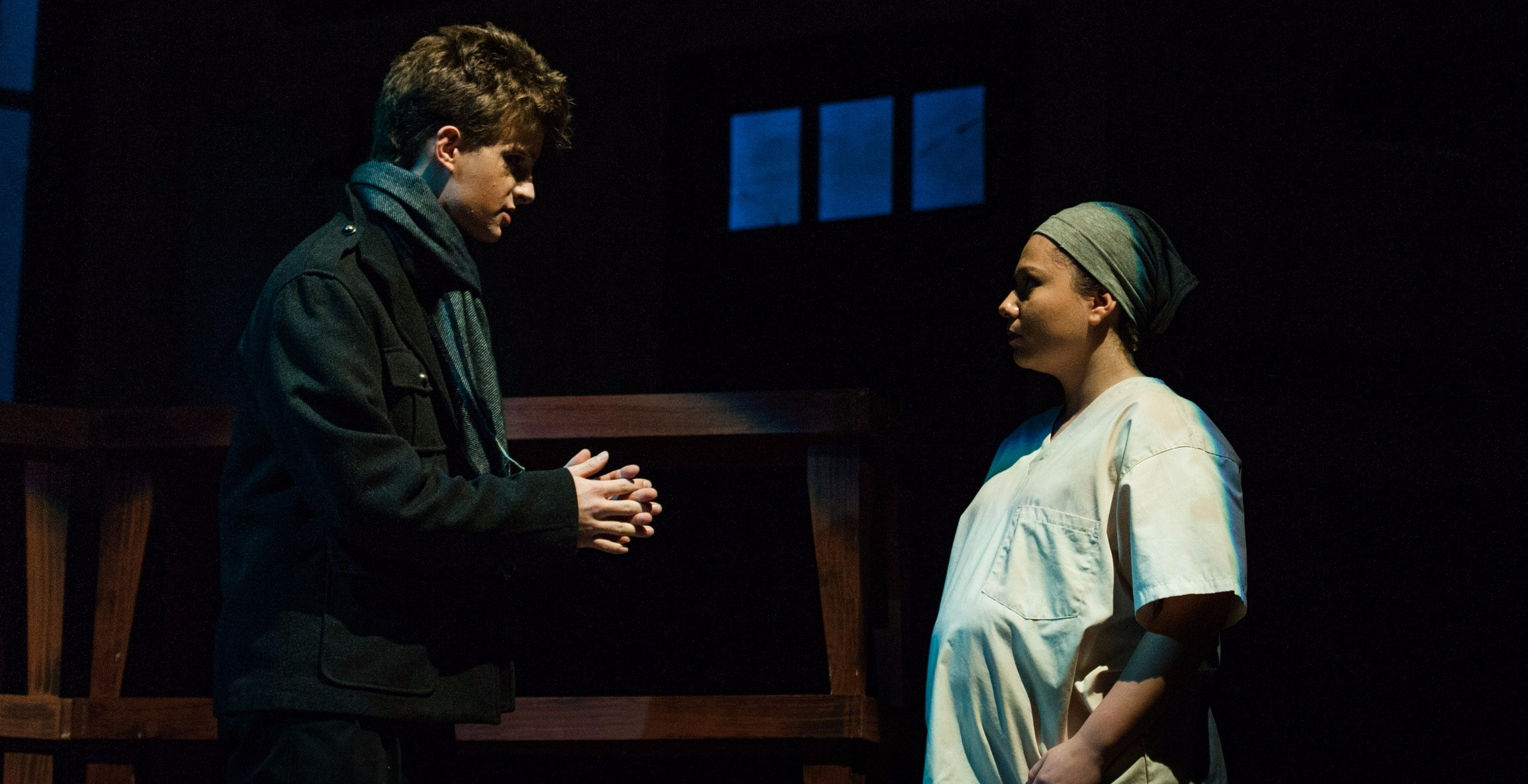The Impact of Community

I have spent nearly 120 hours preparing to perform The Crucible by Arthur Miller. This includes deciding on and learning blocking and inflection, creating the character of Reverend Hale, and of course, learning nearly 160 lines. Most people would be terrified of such a prospect, and to be honest, I was too. But, this fear is offset by the amazing community I have found in the theatre program.
When I was in 7th grade, you could not have paid me enough money to go onstage and act. I was introverted and pretty anxious. But, I enjoyed technical theater (lights, sounds, sets, props). So, I joined the group of other 7th graders who ran the technical elements of the 8th grade play (it was Peter Pan that year). I saw how much joy and kinship the rehearsal process and performances gave the 8th graders, and I knew that I wanted ‘in’ on that.
So, when the 8th grade play rolled around, I auditioned for the lead, knowing full well that it was extremely unlikely that I would get that role. I didn’t really want to be a lead, I just wanted to try theatre out to see if I enjoyed it. I ended up with one whole line “we do your majesty,” but I didn’t let that stop me from being involved in every aspect of the show. I moved nearly every major set piece over the course of the show, helped organize the motion of set pieces, props and actors during a complex rhythmic number called “Quiet!”, repaired a spotlight, and created a book documenting of all of the costume pieces and who was supposed to wear them when. By getting so deeply involved, I got to know people better and learned to be more extroverted, more carefree.
Fast forward to today: I’ve stage managed four shows and am now performing in my third show as an actor. Upon entering high school, I would have never expected to become so engrossed in theatre, but there is such amazing respect, camaraderie, and honest commitment to communal growth, that I found a community for myself. One experience stands out to me in particular: I was cast a significant role in Grease!, the first show of my freshman year. This was a huge surprise to me, because I was a very inexperienced actor. I really had no idea what I was doing. The other principal actors took me under their wing and taught me how to become a person onstage that I’m not in person.
But, there is such a thing as too much community, as exemplified in The Crucible (which is actually a true story). The people of Salem were so focused on keeping their community whole and safe, that they forgot to take a step back and see if their witch hunt was justified. The Salemites isolated outsiders and outcasts, making it nearly impossible for them to defend themselves against the accusations of witchcraft. It is likely that the accusers were only accusing the outcasts to save themselves, but self-defense is no excuse for what they did. The extremely tight-knit community also made it very easy for Abigail Williams to gain the trust of the community, because if one person believed her, then everybody believed her. The only people who suspected that Abigail was lying about the accusations of witchcraft were outsiders to Salem, John Proctor, Giles Corey, and Reverend Hale. John and Giles were not well-respected in the town; John for his lack of faithfulness, and Giles for his outlandish lawsuits. Hale was a stranger to Salem, so he had no affiliations in the town, other than being Parris’ friend.
There is nothing like that in theatre (at least in my experience). People are always welcome to new blood in the program. And, if someone isn’t living up to their potential, everyone works as a team to bring that person up. If there is a problem in the community, we work together to solve it, ensuring that everyone is allowed in the discussion.
I believe that theatre programs can serve as examples of communities that are open enough to allow new people in, yet tight-knit enough to help anyone out in a time of need.